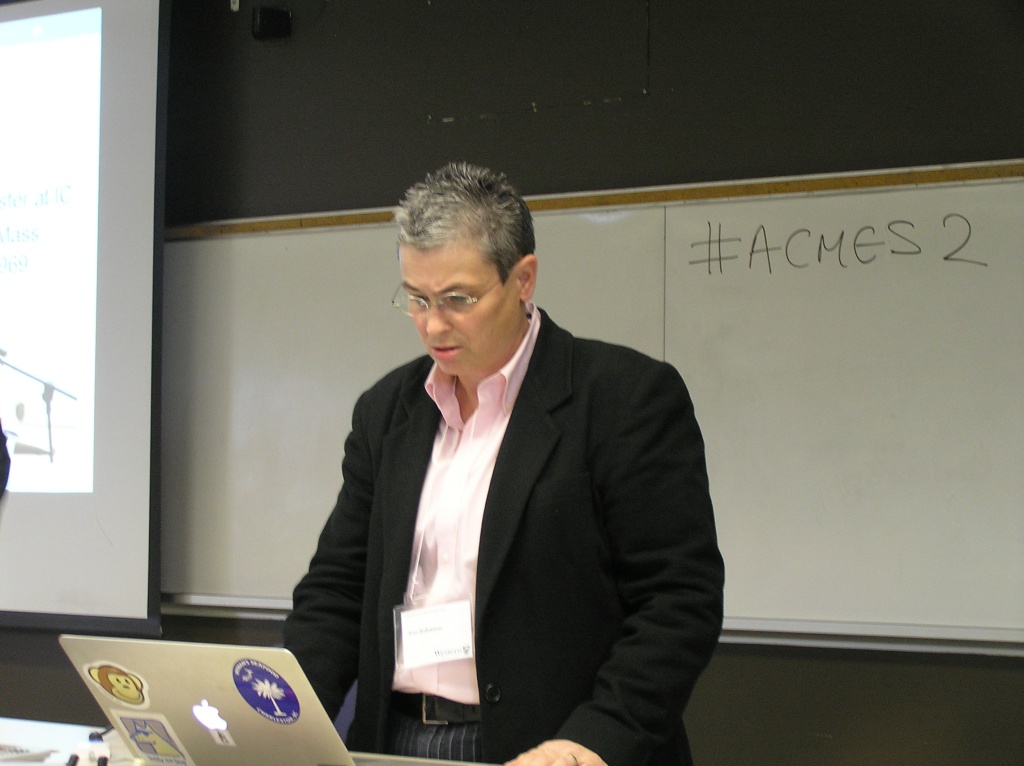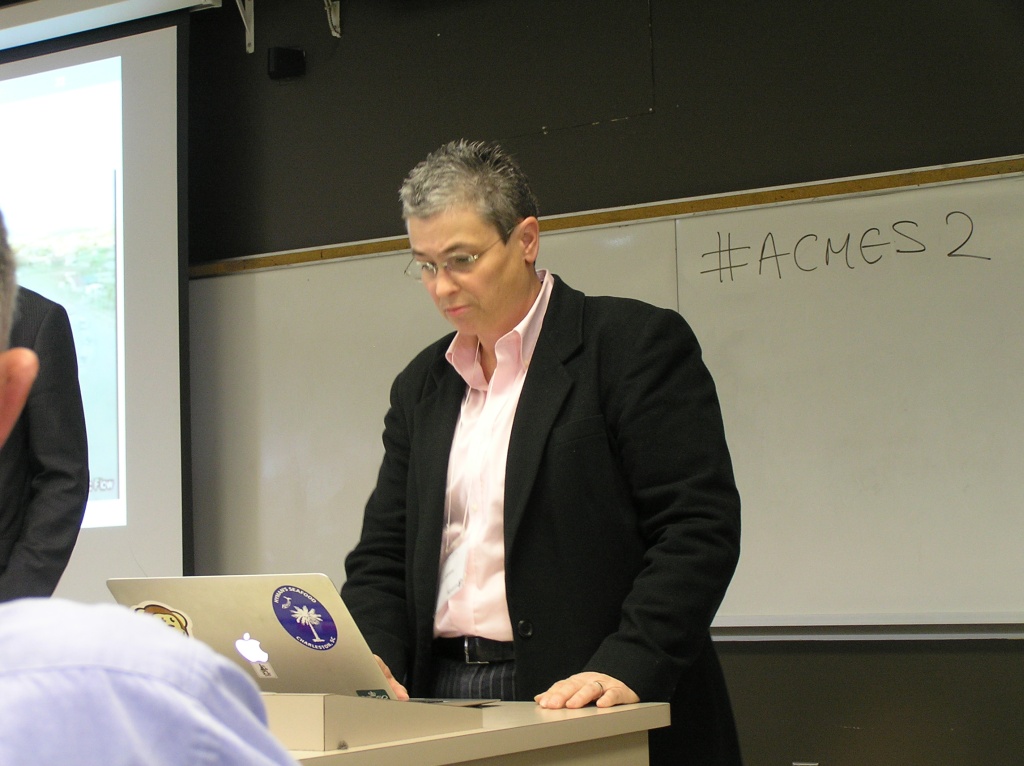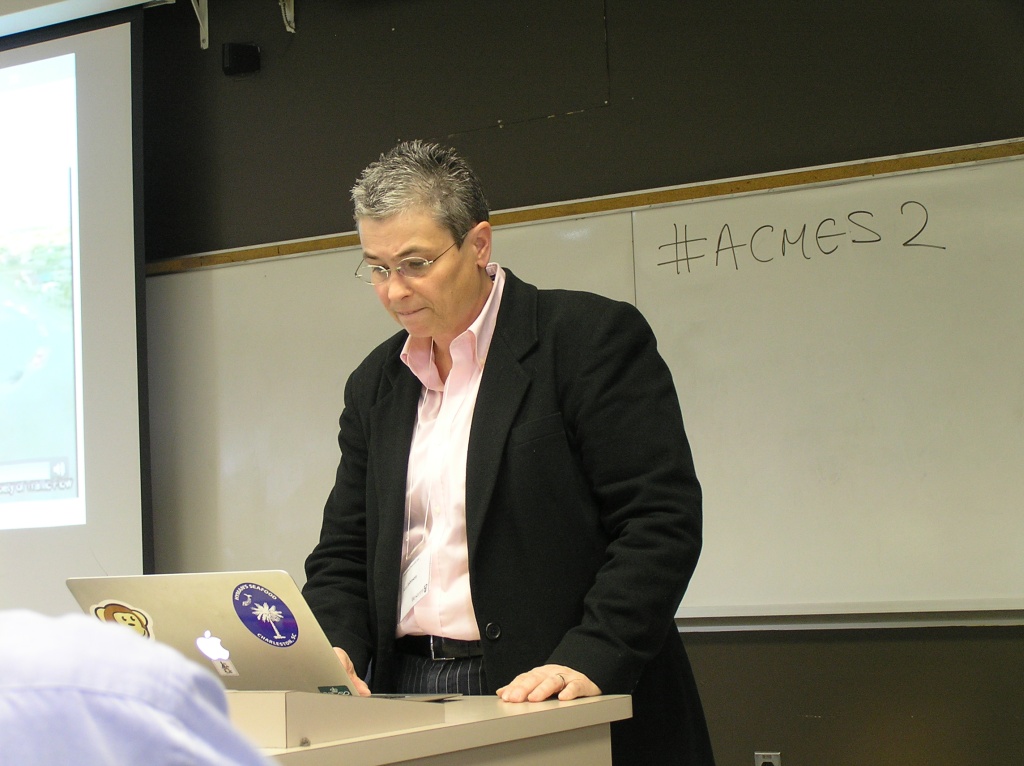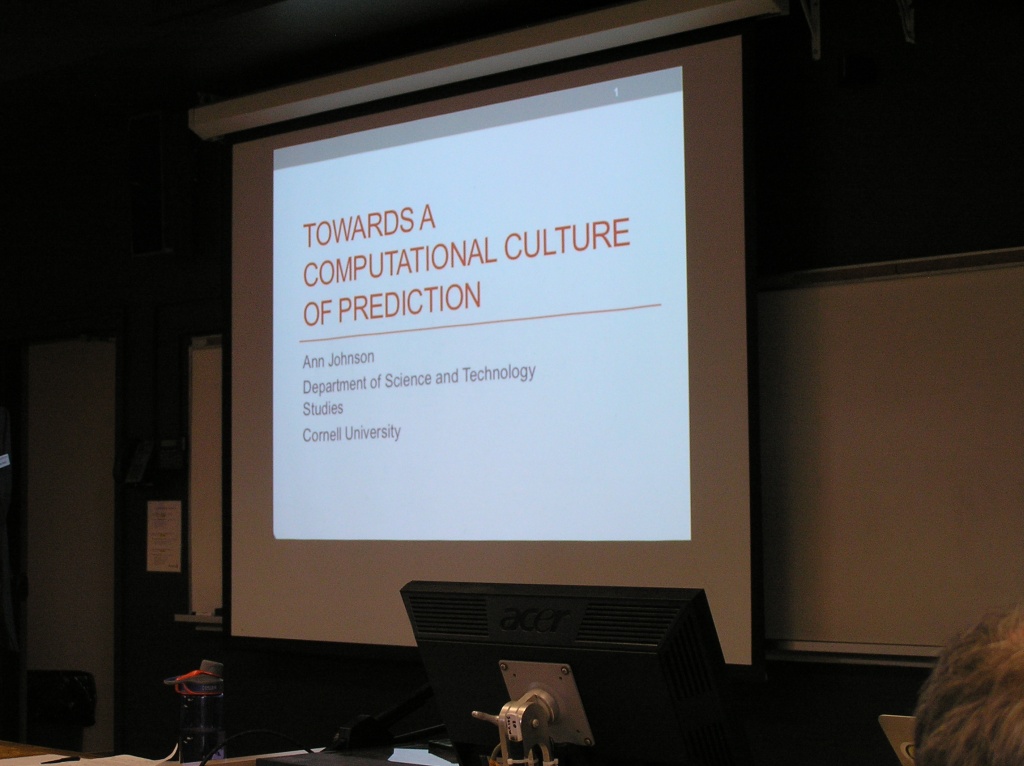Ann Johnson , Department of Science & Technology Studies, Cornell University
Toward a Computational Culture of Prediction: The Co-Evolution of Computing Machines, Computational Methods, and the World around us
The ability to make reliable predictions based on robust and replicable methods is possibly the most distinctive and important advantage claimed about scientific knowledge versus other types of knowledge. Because of the common use of computers and computational tools prediction in science and engineering is playing a much more important and ever-present role in 21st century knowledge production. Computers and simulation methods play prominent roles in a wide range of present-day scientific and engineering research. Without doubt, the computer, computational science, and scientific and engineering research have all mutually shaped one another—what is computationally possible informs the questions scientists and engineers ask and the questions scientists and engineers ask, in part, shape the development of new hardware and software. These mutual influences have been frequently examined, largely through the origins of scientific computing and the application of computers to a series of scientific disciplines and problems in the 1940s and 50s. However, I want to focus on a even more recent development. Namely, to argue that the wide and relatively cheap availability of computing power, particularly through mature networked desktop computing or the so-called “PC (personal computer) Revolution,” has triggered—but, to be clear, not made inevitable—a reorientation in the practices of scientists and engineers. My thesis is that substantial changes have occurred in research practices and culture over the past decades and that these developments have been made possible by everyday accessibility to simulation methods by a wide variety of technical actors. Furthermore, these changes help to generate a highly exploratory mode of research, which, in turn, amplifies the character and role of prediction in science. Such exploratory and iterative strategies introduce a design mode of knowledge production, where science becomes more engineering-like by focusing on 1) making things virtually and 2) testing their performance in computer simulations, and refining design. This is true of obvious engineering designs like planes, but also of molecules, economies, and seemingly autonomous traffic patterns. This new orientation towards design and prediction challenges some of the basic tenets of the philosophy of science, in which scientific theories and models are predominantly seen as explanatory rather than predictive. This talk will use examples from computational fluid dynamics, computational chemistry, and population biology to show what the new computational culture of prediction looks like and what it may mean.







